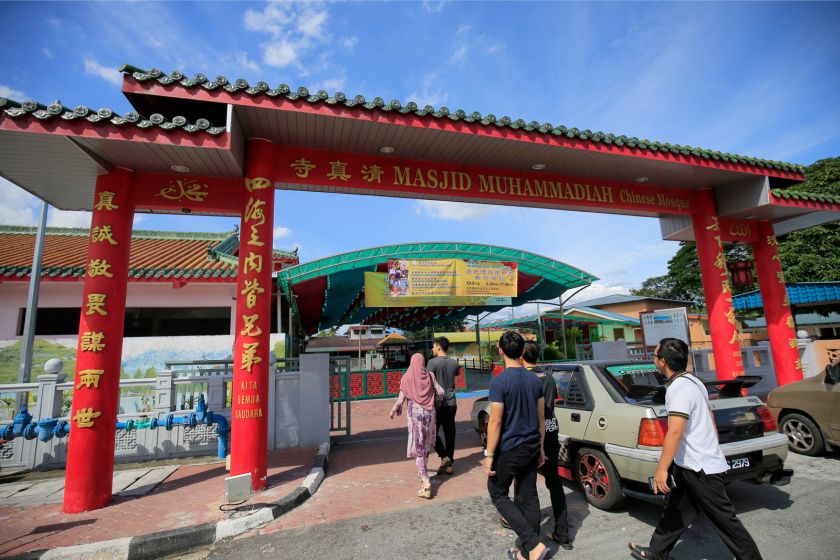
PETALING JAYA, Sept 10 — A group of Chinese Muslims will light up lanterns at the Muhammadiah Masjid in Tasek Jaya, Ipoh, today in another initiative to educate Malaysians on the Chinese culture-Islam relationship in Malaysia.
The move is yet another effort by the Malaysian Chinese Muslim Association (Macma) that represents Chinese Muslims to improve public understanding of the small community.
Its president, Prof Taufiq Yap, said the lantern festival (Mid-Autumn Festival) was celebrated by all as it was a cultural event and had nothing to do with religion.
“It is much easier these days for Chinese Muslim converts to retain their cultural practices. More are becoming aware that one does not have to abandon one’s cultural upbringing simply because they have embraced Islam,” he said in an interview.
Taufiq said state religious departments tended to be much more understanding on issues like retaining one’s birth name upon conversion.
“In principle, there is nothing obstructing Chinese Muslims from celebrating cultural festivals which do not go against the tenets of Islam,” he said citing the example of Chinese New Year and Tang Yuan (Winter Solstice Festival).
It might come as a surprise for some to know that Chinese Muslims also participate in Cheng Beng, also known as the tomb-sweeping festival where Chinese families clean the graves of ancestors.
“Although it can be a bit difficult, Chinese Muslims can join them in cleaning graves to honour our ancestors. However, we abstain from rituals such as offering incense as that involves faith,” said Taufiq who became a Muslim 33 years ago.
He said Macma aimed to empower Chinese Muslims and share the universal message of Islam to the wider Chinese community.
“This does not mean we preach or proselytise to them but rather clear whatever misconceptions they might have of our faith,” he said.
Yet challenges remain such as the inability to conduct sermons in Mandarin which required more Chinese Muslims educated in Islamic knowledge.
Taufiq said Macma would support members who wanted to study Islam in the hope that one day sermons could be conducted in Mandarin.
“But the mosque in Ipoh is not for Chinese Muslims only. We encourage others to pray here and in the process learn about our community.”
Taufiq said Chinese Muslims were encouraged to mix with Malaysians of other religions and cultures in ensuring mutual respect .
“All humankind is created by God, and we must respect each other and not speak ill of one another. By accepting differences among Malaysians, we will able to learn that these do not weaken us but add value to our culture,” he said.
Chinese Muslims arrived in the country centuries ago but most members of the community today are recent converts or reverts.
A migration of eight Chinese Muslims took place in 1913 from Shandong in northern China to Sabah.
“The Hui Muslim families have seen five generations in Kota Kinabalu,” he said, adding that they had managed to retain much of their culture.
Taufiq said the majority of Chinese Muslims today comprised Chinese who married Malays.
He said Chinese Muslim immigrants to Penang and Terengganu over the years had lost their distinctiveness, assimilating into Chinese and Malay culture.
On his conversion, the 48-year old chemistry professor at Universiti Putra Malaysia, embraced Islam on November 26, 1983, while in Form Four.
“I embraced Islam on my own accord. My mother supported my decision when I told her of my intention to become a Muslim.
“She told me I was already old enough to decide what faith I should choose to follow. But my stepfather, whom I did not tell, eventually found out from others. When he finally knew, he called me anak Bajau (Bajau child) since the Bajau people in Sabah are Muslims,” he said.
Taufiq said it was not easy trying to retain his communal links after his conversion as traditonal Muslims said he should not use chopsticks or speak Mandarin and that he should eat with his hands.
“But I continued to carry on with my traditional lifestyle despite the criticisms,’’ he said.


















